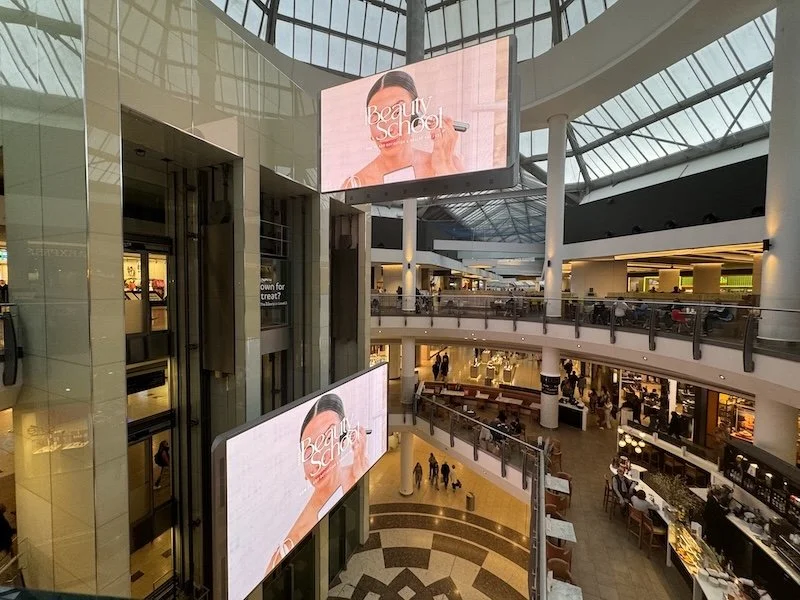The future of retail: how artificial intelligence is transforming customer engagement
The way we shop is evolving quickly, and AI is becoming a key factor in improving customer engagement. Because of this, new ideas in retail especially with AI are leading the way. Artificial intelligence is helping stores create shopping experiences that feel more personal and tailored to each customer.
When someone interacts with a product, the AI behind the scenes picks up on the patterns and preferences, and because of that, retailers can offer more personalised experiences. This is just one example of how AI is changing the way we shop but so many other technologies like customer behaviour analysis and the prediction of future purchases are being developed and improved each day.
Current Applications of AI in Retail
We’ve seen artificial intelligence make its way into several industries already. Whether you play online casino games at Fair Casinos or use social media for content consumption, AI is making everything more relatable by predicting what the user will enjoy more.
Similarly, AI technologies are currently transforming retail in several ways:
● Chatbots in trade have become a staple for many businesses. They provide instant customer service, answering queries and guiding customers through the purchasing process. This is one of the primary retail innovations already at play.
● Another application is sales optimisation through personalised recommendations. This not only enhances customer interaction but also builds trust and customer loyalty.
● Customer service automation driven by AI is another key aspect of transforming retail. From managing supply chains to streamlining checkout processes, AI can handle repetitive tasks with much ease. For example, sales process automation can predict when to restock items based on sales trends, preventing stockouts and ensuring that customers find what they need.
● Today retailers are also using AI algorithms to analyse customer behaviour, purchase history, and preferences. This data allows them to recommend products that customers are more likely to buy, making shopping more convenient and enjoyable.
Whether it's suggesting a new pair of shoes that match a customer's previous purchase or offering discounts on favorite brands, personalised shopping powered by AI creates a sense of individual attention that many customers appreciate.
Impact on Customer Experience
AI is having a huge impact on customer experience. By using AI stores can build stronger connections with their customers. Because of AI they can offer personalised recommendations, provide help when needed, and share promotions that are relevant to each shopper, which helps build loyalty.
Customer service automation also lets stores handle simple questions quickly, so staff can focus on more complicated issues. AI also helps retailers make smarter decisions by analysing huge amounts of data fast, like sales trends, customer feedback, and what's in demand. Because of this stores can improve how they manage inventory marketing and product choices, leading to a much better experience for shoppers.
AI is also changing how customers experience shopping in stores, making it more exciting and interactive. With technologies like augmented reality (AR) and smart mirrors, shopping can feel more like an adventure. Imagine being able to try on clothes without stepping into a fitting room at all or even seeing how that perfect piece of furniture would fit in your house, and all will just a few clicks.
These innovations don't just make shopping easier, they also bring a sense of wonder and fun to the whole experience, drawing more customers in and making them want to stay longer, explore more, and enjoy the magic of shopping in a whole new way.
Future Trends and Innovations
Looking ahead, emerging AI technologies promise to revolutionise the future of trade, focusing on AI and customer experience, AR, and other analysis tools. These tools, including virtual reality, are set to change the way consumers shop.
Imagine being able to visualise how furniture would look in your home or trying on clothes virtually before making a purchase, no matter which store you step into. These trends represent the next frontier in the future of e-commerce, providing consumers with remote shopping experiences that are both interactive and immersive.
Moreover, advancements in customer service automation through chatbots are expected to significantly enhance customer experience. These intelligent systems can provide real-time assistance while online shopping making the experience smoother.
As these technologies evolve, they will not only improve customer satisfaction but also increase advertising campaign effectiveness by tailoring promotions to individual preferences. This fusion of AI with immersive technologies will redefine how users engage with brands, making shopping more than just a transaction.
Challenges and Considerations
While the benefits of AI in retail are clear, there are also challenges to consider. The two main ones are as follows:
● Privacy concerns are at the forefront, as customers are increasingly aware of how their data is used.
It’s becoming more and more important to be aware of how to stay safe when using digital technologies. Retailers must ensure robust data security measures to protect customer information and build trust. This includes transparent communication about data collection practices and giving customers control over their information.
● While AI enhances many aspects of retail, maintaining a human touch in customer interaction is vital. Many people appreciate the personal connections and empathy that only a human can provide. The best experiences, therefore, must combine the efficiency of AI with the warmth of human engagement.
Conclusion
The impact of artificial intelligence on retail is huge. AI is changing how stores connect with their customers, from improving customer service to making shopping experiences more personal. These technologies help businesses understand data better which means they can offer personalised recommendations and create interactions that really connect with shoppers.
As more stores start using these innovations, it will be important to find a balance between technology and ethics making sure customers feel safe and appreciated. The future of retail looks promising and AI will definitely be a big part of driving that future and building customer loyalty.































Continue reading…